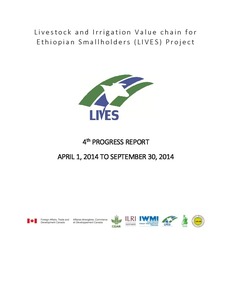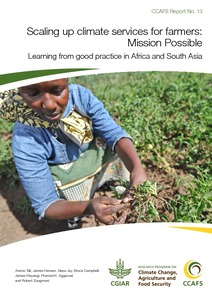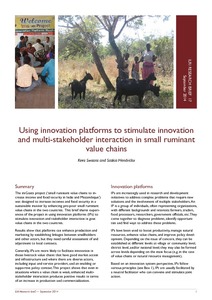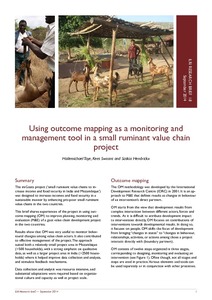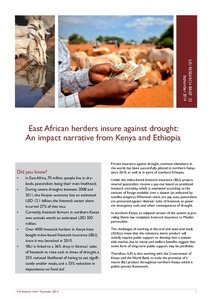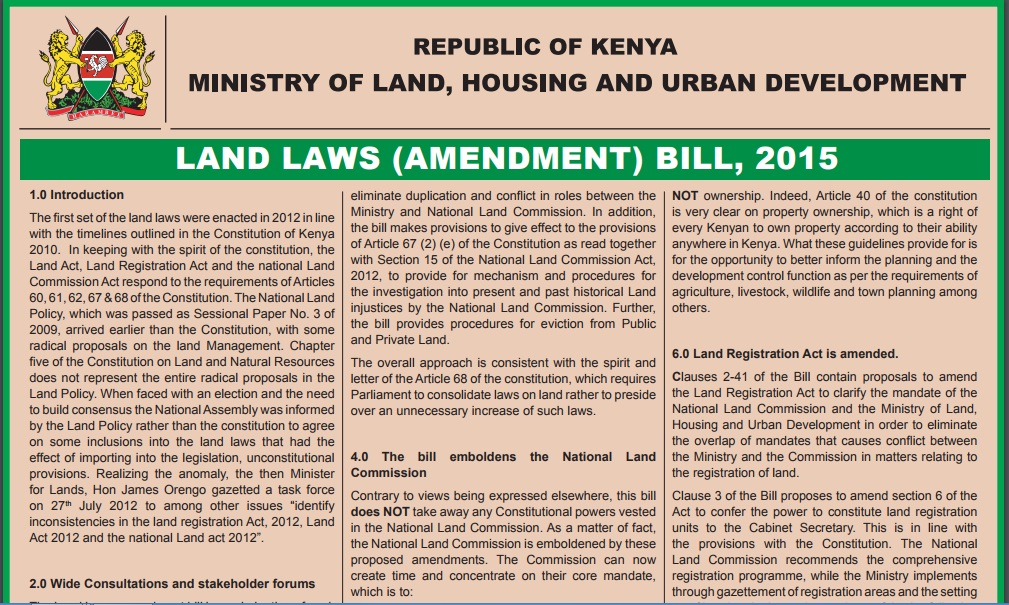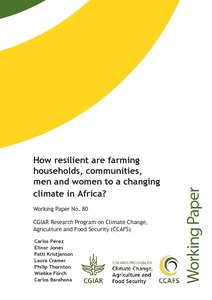Scaling up climate services for farmers: Mission Possible. Learning from good practice in Africa and South Asia
This report presents lessons learned from 18 case studies across Africa and South Asia that have developed and delivered weather and climate information and related advisory services for smallholder farmers. The case studies and resulting lessons provide insights on what will be needed to build effective national systems for the production, delivery, communication and evaluation of operational climate services for smallholder farmers across the developing world.
Using innovation platforms to stimulate innovation and multi-stakeholder interaction in small ruminant value chains
Using outcome mapping as a monitoring and management tool in a small ruminant value chain project
Lands of the Future: transforming pastoral lands and livelihoods in eastern Africa
Pastoral and agro-pastoral areas in eastern Africa and elsewhere have long been regarded as peripheries in economic terms and in terms of social and cultural accomplishments. Although biased perceptions of the ‘unproductive’ uses of pastoralism have become outdated, government policies still do little to formally recognise or integrate pastoral lands as critical parts of rural livelihood systems and economic development models.
East African herders insure against drought: An impact narrative from Kenya and Ethiopia
Pastoralism: Animal health and food safety situation analysis, Kenya and Tanzania
Pastoralism is a farming system in societies that derive majority of their food and
income from livestock production. This form of farming system is practised in the
world’s arid and semi arid lands (ASALs). It is estimated that 70% of the landmass
in the Horn of Africa is dry land; in Kenya 80% of the landmass is classified as ASAL
while approximately half of Tanzania consists of dry land. These dry lands can only
be effectively utilised when used for livestock rearing, supporting wildlife resource
harvesting and tourism.
Community and government: planning together for climate resilient growth
Planning for climate resilience growth is increasingly important for the natural resource dependent economy of Tanzania. Central government does not have the knowledge, reach, skills or resources needed to plan for the range of livelihoods within Tanzania; but local governments, if granted the authority and resources, could plan with communities in the flexible, timely and appropriate manner that climate variability demands.
Land laws amendment bills: a practitioner’s perspective on the land bills
The first set of the land laws were enacted in 2012 in line with the timelines outlined in the Constitution of Kenya 2010. In keeping with the spirit of the constitution, the Land Act, Land Registration Act and the national Land Commission Act respond to the requirements of Articles 60, 61, 62, 67 & 68 of the Constitution. The National Land Policy, which was passed as Sessional Paper No. 3 of 2009, arrived earlier than the Constitution, with some radical proposals on the land Management.
How resilient are farming households, communities, men and women to a changing climate in Africa?
Using a 9-country dataset from sub-Saharan Africa, and integrating quantitative household-level analyses with qualitative work, the paper shows that gender relations affect agricultural practices and adaptation. The women farmers in our sample control less land than men, the land they control is often of poorer quality, and their tenure is insecure. Women, more than men, are dependent on internal village groups, as opposed to organizations operating at regional or national levels.

